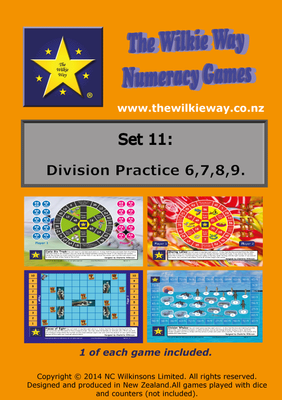
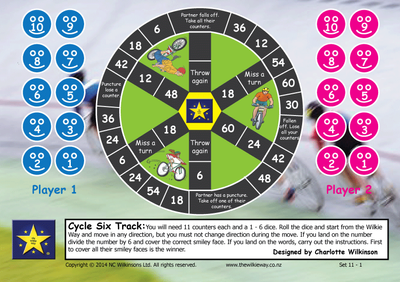
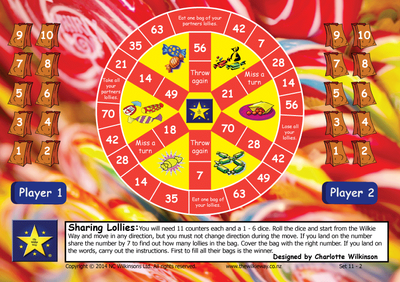
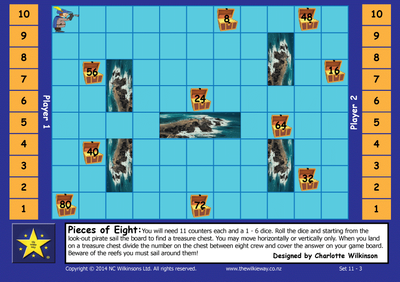
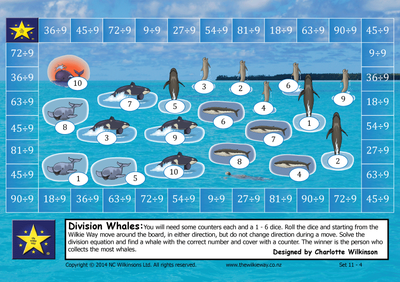
Set 11 Division Practice 6,7,8,9
$12.00
Students need plenty of opportunities to practice division, both equal grouping and equal sharing scenarios as the inverse of multiplication facts.
- Cycle Track: Focuses on division by 6 as the inverse of multiplication. Initially students may need counters to physically divide but the aim is for students to use knowledge of the 6 times table.
- Sharing Lollies: Focuses on division by 7 in the context of division as sharing. Students may need counters to complete the share but should ultimately be able to use knowledge of the 7 times table.
- Pieces of Eight: Focuses on division by 8 in the context of division as sharing. Counters may be required in early game play but work towards using knowledge of 8 times table.
- Division Whales: Focuses on division as the inverse of multiplication. Initially students may need counters to physically divide but the aim is for students to use knowledge of the 9 times table.

